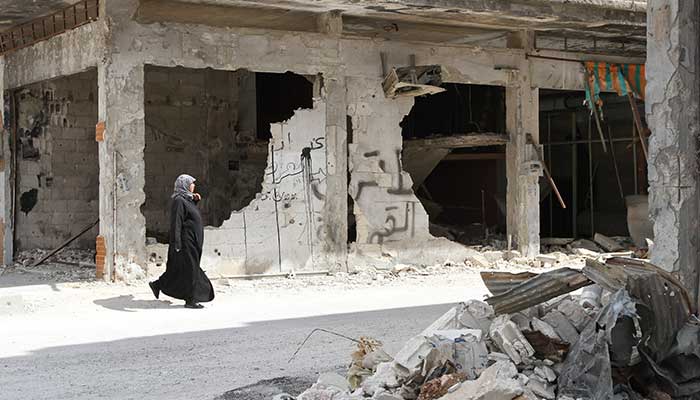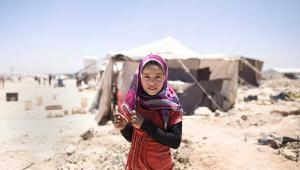web_syriadestruction_istock-494418686.jpg

A woman walks past destroyed buildings in Syria.
A new paper from the International Growth Centre, based at the London School of Economics, found that in the highest intensity conflicts, like Syria, gross domestic product per capita falls by 5-10 percentage points every year.
This suggests Syria has lost between $20bn and $38bn worth of potential GDP. Hannes Mueller, a post-doctoral researcher at the Institute for Economic Analaysis and one of the paper’s authors, said this reflects a “large and permanent loss in Syria’s capacity to produce”.
“Each year the war continues, the capacity to produce is reduced further,” he explained. “The effect is cumulative, and a huge part of the loss is coming from the population’s suffering.”
The paper pointed out that the damage done to the health and education of those caught up in conflict persists, affecting an economy’s capacity to recover in some cases for a generation.
Last year, charity Save the Children found that enrolment rates in Syria had fallen from almost 100% to an average of 50%. Nearly three million Syrian children are thought to be out of school.
At least a quarter of schools in Syria had been damaged, destroyed or were being used for other purposes, at the time of Save the Children’s report. The charity estimated it will cost more than $2.5bn to repair the country’s once-functioning education sector.
The loss of human capital in places like Syria from such intense conflict is massive. The IGC’s research stressed that humanitarian aid has a critical role to play in preventing this: by supporting programmes to get children and adolescents back to school would help the country overcome the war’s economic damage.
“Humanitarian aid is an investment for the future,” Mueller noted.
The paper argued that understanding the economic costs of conflict – about 18% of GDP per capita after four years of very intense fighting – could help governments and aid organisations better support recovery once it ends.
Restoring investor confidence and building trust in the aftermath of war should be high priorities, it said. Investor expectations of political risks and the likelihood of a resurgence in violence is a key factor in the amount of damage done to an economy.
Corporations, from global to local, react strongly to risk and instability, with research estimating that foreign investment increases by half on average when wars end.
Policies that de-escalate a conflict and commit warring parties to peace – such as institution building for example – should therefore be considered.
Addressing the root causes should also be emphasised, to prevent conflict before it occurs or to prevent a relapse in a post-conflict environment.













